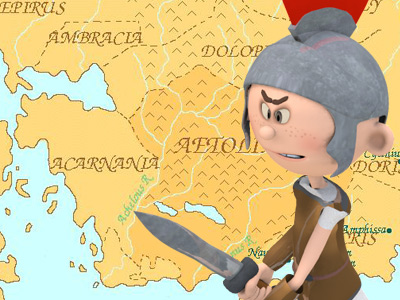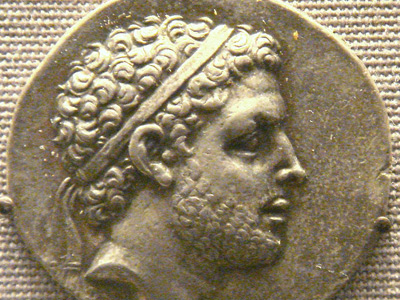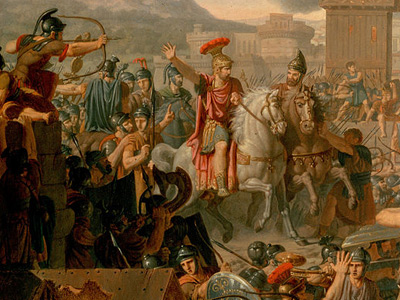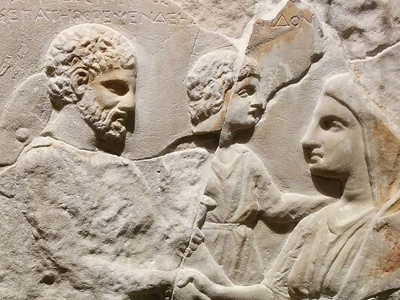Second Macedonian War (200–197 BC)
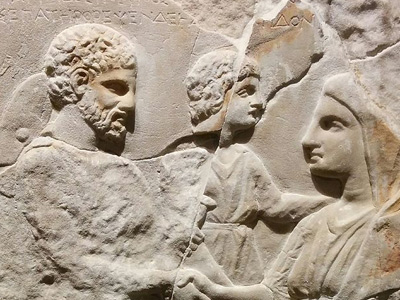
The Peace of Flamininus
An armistice was declared and peace negotiations were held in the Vale of Tempe. Philip agreed to evacuate the whole of Greece and relinquish his conquests in Thrace and Asia Minor. Flamininus' allies in the Aetolian League also made further territorial claims of their own against Philip but Flamininus refused to back them. The treaty was sent to Rome for ratification. The Senate added terms of its own: Philip must pay a war indemnity and surrender his navy (although his army was untouched). In 196, peace was finally agreed and at the Isthmian Games that year Flamininus proclaimed the liberty of the Greeks to general rejoicing of those who were attending the Games. Nevertheless, the Romans The Roman Republic was a form of government of Rome and the era of the classical Roman civilization when it was run through public representation of the Roman people. Beginning with the overthrow of the Roman Kingdom (traditionally dated to 509 BC) and ending in 27 BC with the establishment of the Roman Empire, Rome's control rapidly expanded during this period - from the city's immediate surroundings to hegemony over the entire Mediterranean world. kept garrisons in key strategic cities which had belonged to Macedon – Corinth, Chalcis and Demetrias – and the legions were not completely evacuated until 194.
The Roman Republic was a form of government of Rome and the era of the classical Roman civilization when it was run through public representation of the Roman people. Beginning with the overthrow of the Roman Kingdom (traditionally dated to 509 BC) and ending in 27 BC with the establishment of the Roman Empire, Rome's control rapidly expanded during this period - from the city's immediate surroundings to hegemony over the entire Mediterranean world. kept garrisons in key strategic cities which had belonged to Macedon – Corinth, Chalcis and Demetrias – and the legions were not completely evacuated until 194.
HISTORY

RESOURCES
This article uses material from the Wikipedia article "Second Macedonian War", which is released under the Creative Commons Attribution-Share-Alike License 3.0.
© Stories Preschool. All Rights Reserved.
